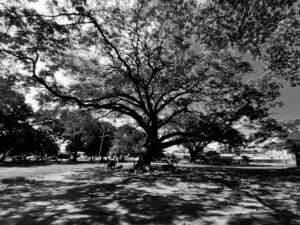Improving University Success for Low-Income, High-Achieving Students in South Africa
SUMMARY
We improved the effectiveness of a university scholarship program in South Africa by employing our behavioral design methodology to help students use the program’s supportive resources. We designed a suite of solutions that shifted norms, changed students’ peceptions of help-seeking, and reminded students to seek support at pertinent moments. An evaluation of the solutions illustrate positive impacts. For example, students who received one intervention alone were on average 6.6 percentage points more likely to seek academic support from the program than the control group.
The Challenge
Graduating from university can offer many benefits, such as increased access to job opportunities and increased earning potential. However, many people who live in poverty remain unable to complete a university degree due to a lack of adequate resources and support. In South Africa, students from low-income backgrounds may take up to 10 years to complete university, and 2 in 5 end up unemployed after graduation (Statistics South Africa, 2020; NSFAS Report 2020). We worked with a university scholarship program that helps low-income, high-achieving students enrolled in the country’s top three universities navigate through common barriers to graduation by offering students comprehensive academic, financial, wellness, and career support. The scholarship program has a successful track record of helping students graduate from university and find employment.
Our Approach
Despite the high graduation and job placement rates seen as a result of the scholarship program, we learned from program staff that many students who could benefit from the available resources do not engage with the program until it is too late for its support to be useful. With this in mind, we worked to diagnose the behavioral barriers students face in proactively seeking out program resources, and to design and test solutions to improve help-seeking behavior, with the ultimate goal of supporting more students to succeed at university, graduate on-time, and start their careers.
Results
Behavioral diagnosis illuminated that students often fail to seek support at timely moments because of their perceptions of themselves (i.e., they are a high-achiever so must excel on their own), their perceptions of others’ behavior (i.e., they don’t know other students who’ve used support), and because of their limited attention (i.e., they’re too busy to remember to seek help). Based on these insights, we designed a set of four solutions that aim to directly target identified barriers and support students to access program resources. The solutions include:
- Timely communications sent at pertinent times in the sememster, designed to reset norms around help-seeking and remind students to reach out to the program team.
- A commitment exercise that prompts students to reflect on how others can help them succeed and reaffirm that seeking help does not diminsh their accomplishments.
- A letter for students to give to parents or others in their community, aiming to decrease the external pressure students feel to excel on their own.
- A planner or timetable, with carefully placed prompts that help students plan ahead, remind them to seek help at key moments in the term, and reinforces positive identities and norms.
Evidence from an evaluation of the solutions suggests that they led to positive shifts in students’ attitudes, perceptions, and behavior. For example, students who received the timely communications alone were 6.6 percentage points more likely to use academic support on average, compared to similar students who did not receive the communications. Furthermore, a majority of students reported that the solutions helped them to understand that they need the help of others to succeed and that they can use the support provided by the program with no strings attached.
More details on our behavioral insights, solutions, and results can be found here.
Takeaway
All students deserve to use the supportive resources available to them to the fullest extent possible. Yet deeply entrenched behavioral barriers can prevent students in South Africa and beyond from seeking out support, thereby limiting their abilities to excel in university. A careful diagnosis of the context surrounding university students can illuminate novel, light-touch solutions to encourage help-seeking, with the ultimate goal of supporting student success. Insights and solutions gleaned from this work may also be valuable for practitioners working beyond the university context to support young people’s success (e.g., job placement) as young people may face similar barriers in those contexts as well.
Interested in our work applying behavioral science to global development? Email info@ideas42.org, follow us on LinkedIn, or tweet at @ideas42 to join the conversation.









